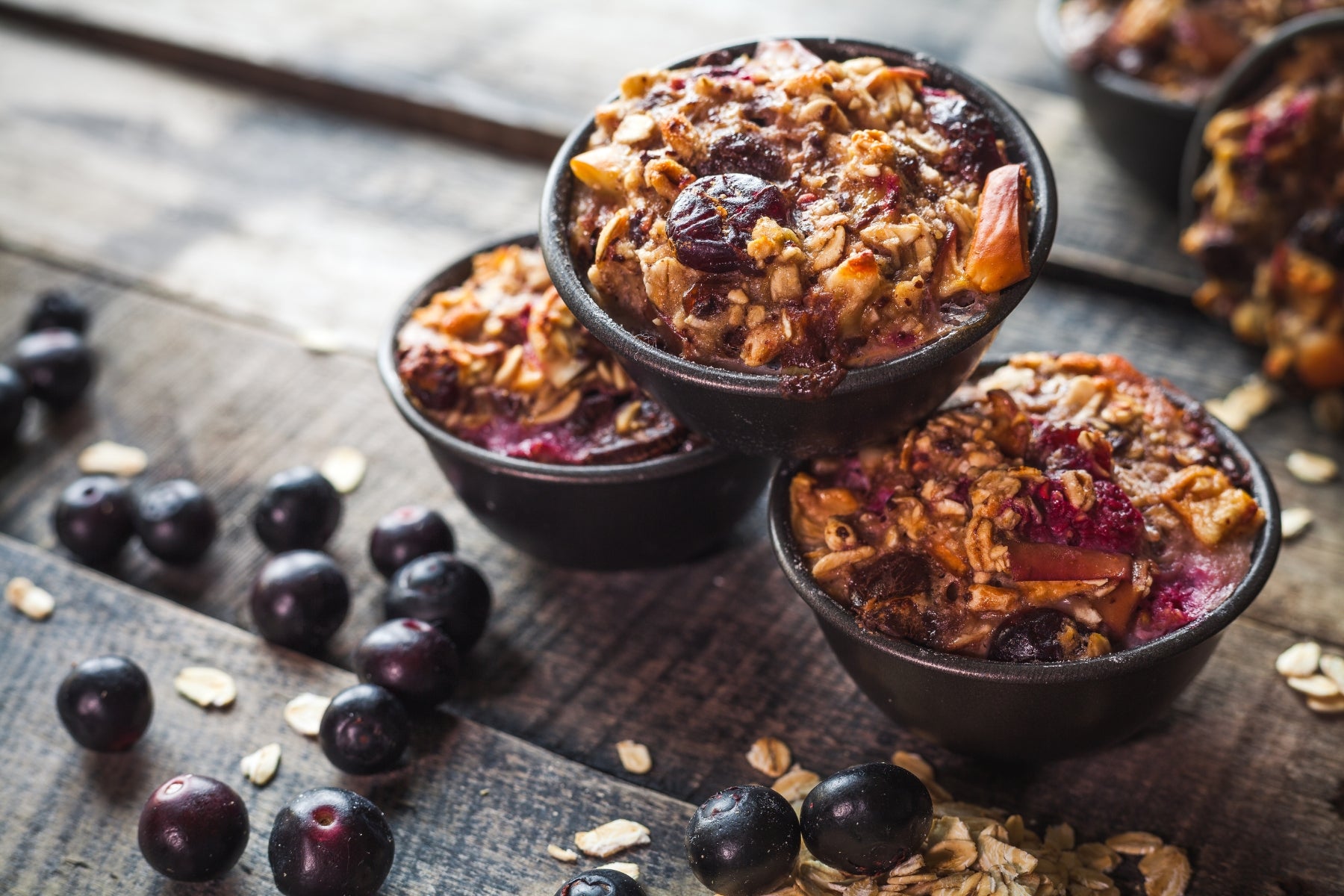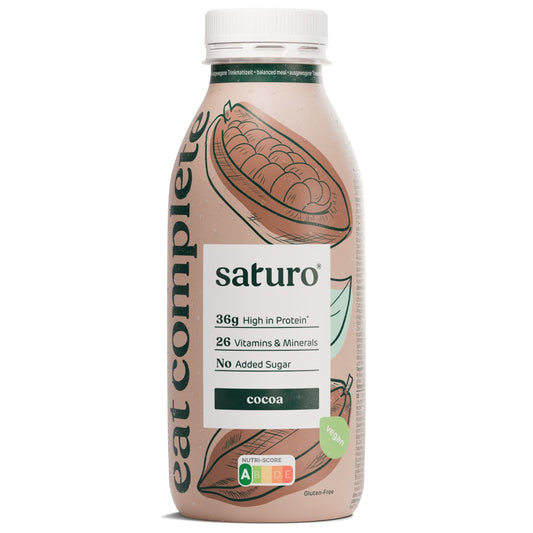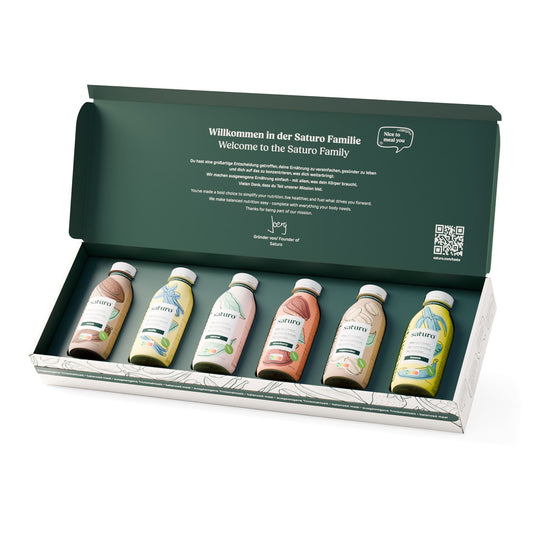
Eating before sport - the perfect Pre Workout Meal
Why is nutrition before sport so important?
The importance of nutrients for sporting performance
The right nutrition before sport, also known as Pre Workout Meal or Pre Training Meal, is crucial for your performance. Your body needs the right nutrients to provide energy, build muscle and keep you fit. Carbohydrates are particularly important because they are the primary energy source for intensive loads. But proteins and healthy fats also play a role in your sport performance.
How the food affects your performance
What and when you eat at your Pre Workout Meal has a great influence on how you feel and what you can afford. If you train with an empty stomach or after a difficult meal, you can quickly become dizzy and sick. The energy reserves are either empty or your body is busy digestion. Both reduce your performance. Ideal are light, carbohydrate-hugging Pre Training Meals 2-4 hours before sport.
Positive effects of the right nutrition on the training effect
If you eat the right food at the right time before sport, your training sessions will become more effective. The nutrients give you energy, increase the endurance and shorten the regeneration time. This allows you to train more intensively and longer, make quick progress and reach your goals easier. Especially for strength athletes and endurance athletes, a targeted diet with a balanced Pre Workout Meal is the be -all and end -all.
Carbohydrates as an energy source for sport
How the body uses carbohydrates
Carbohydrates are the preferred fuel of your muscles. Your body converts it into glucose and stores them in muscles and liver as glycogen. When loaded, the glycogen is split into glucose again and serves as fast energy. The higher your glycogen stores are filled, the longer you last. However, the memory are used up after about 90 minutes.
The best carbohydrate sources for your Pre Training Meal
Before sport, you should mainly eat complex carbohydrates in your Pre Workout Meal. These are contained in whole grains, legumes, potatoes or pseudo -cereals such as quinoa. They deliver long -lasting energy without increasing blood sugar levels. Fruit and vegetables are also good carbohydrate suppliers. Simple carbohydrates such as in white bread or sweets are less suitable.
How much carbohydrates you need before training
The optimal carbohydrate amount for your PRE training meal depends on the length and intensity of your training. You can remember as a rule of thumb:
- 1-2 hours in advance: 1-2g carbohydrates per kg body weight (e.g. 1 banana)
- 2-4 hours in advance: 2-3g carbohydrates per kg body weight (e.g. 1 portion of whole grain pasta)
For one-hour training, 1-2 portions of fruit are usually sufficient. For endurance loads over 90 minutes, you should also supply carbohydrates during sports.
The role of proteins for muscle building
Why athletes need more protein
Proteins fulfill numerous functions in your body. They are part of the muscles, tendons, ligaments and organs. Muscle fibers are slightly damaged in sports. To repair them and build new muscles, your body needs sufficient protein. Active athletes therefore have a 50-75% higher protein requirement than non-athletes. You should also take this into account with your Pre Workout Meal.
High quality protein sources for your PRE training meal
Animal foods such as meat, fish, eggs and dairy products are considered high -quality protein sources. They contain all essential amino acids that your body cannot produce itself. Plant protein sources such as legumes, nuts and seeds are also very healthy and also deliver fiber. Pay attention to a combination of animal and herbal protein suppliers in your Pre Training Meal.
When and how much protein you need
Athletes should consume about 1.2-2g protein per kg of body weight throughout the day. Ideal are several protein -containing meals and snacks, e.g. lean curd with nuts. The protein intake after training is particularly important. In the first 30 minutes, your body starts the regeneration and structure processes of the muscles. A portion of 20-30G protein in the PRE or Post Workout Meal stimulates muscle growth.
Healthy fats as an energy supplier
Why your body needs fat
Fat is not only insulating body tissue, but also fulfills vital tasks. It is part of the cell membranes, serves as a long -term energy storage and is a carrier of fat -soluble vitamins A, D, E and K. Many hormones are also formed from fatty acids. Fat provides more than twice as much energy per gram as carbohydrates or proteins. It is therefore an efficient and sustainable fuel for your body.
Which fats are particularly valuable
Basically there are saturated and unsaturated fatty acids. Saturated fats are mainly contained in animal products such as meat, sausage and cheese. You can be unhealthy in large quantities. Unsaturated fats occur in nuts, seeds, avocados and vegetable oils such as olive oil and are considered very healthy. The omega-3 fatty acids are particularly valuable, which have an anti-inflammatory effect and protect the cardiovascular system.
The right amount of fat in the athlete's nutrition
About 25-30% of your daily calories should come from high-quality fat sources. This corresponds to about 60-80g fat for an active person. Athletes can easily refill their energy stores without getting into a lack of nutrients. Good snacks before training are a handful of nuts or a piece of whole grain bread with avocado. String fats such as peanutism are also an option for your Pre Workout Meal as long as they are not sweetened or hardened.
Timing and portion sizes before training
The optimal time for your Pre Workout Meal
When you eat your last major meal before sport depends on the content and personal well -being. You should eat higher-caloric pre training with a lot of protein, fat and fiber 3-4 hours in advance so that the digestion is complete. Smaller meals or snacks with quickly available carbohydrates are ideal 1-2 hours before sport. It is also advisable to drink enough before and during sport.
Recommended portion sizes for more power
The perfect quantity naturally depends on your sport, constitution and the training goals. As an orientation for your Pre Workout Meal, you can remember these recommendations:
- 3-4 hours in advance: Large meal with 500-800 kcal, e.g. turkey breast with wholemeal noodles and vegetables
- 2-3 hours in advance: Smaller meal with 300-500 kcal, e.g. whole grain toast with cottage cheese and tomato
- 1 hour before: snack with 150-300 kcal, e.g. banana with almonds or energy bars
- Immediately before: carbohydrate gel or sports drink, if necessary
What you should avoid better before sport
Strongly processed foods such as fast food, ready meals or sweets are taboo as Pre Training Meal. They deliver many empty calories, but hardly any nutrients and put a strain on digestion. Greasy, fried or very fibrous foods can also cause problems. They stay in the stomach for a long time and are slowly digested - the result can be discomfort and cramps. You should also do without carbonated drinks, coffee and alcohol at your Pre Workout Meal.
Practical tips for meal planning
Preparation is everything
Plan your Pre Training Meals in advance and already buy all the necessary food. Prepare snacks such as nuts, fruit or sandwiches best at home and pack them in boxes. So you are flexible and do not have to fall back on unhealthy finished products if things have to be done quickly. With a little preparation, optimal conditions for your Pre Workout Meal can also be created on the go.
Listen to your body
Everyone is different and has individual needs and tolerability. What is optimal for one as a PRE Training Meal can be too much for others. Experiment with different foods and timings and watch how they affect your condition and performance. Over time, you will develop a feeling for what works best for you personally.
Examples of optimal Pre Workout Meals
Here are a few delicious and balanced Pre Training Meal ideas for inspiration:
- Porridge made of oatmeal, milk, berries and nuts
- Whole grainbagel with turkey breast, salad and tomatoes
- Quinoa salad with chickpeas, vegetables and avocado
- Smoothie made of banana, spinach, almondmus and coconut water
- Sweet potato with chicken fillet and broccoli
With the right Pre Workout Meal and a balanced athlete's nutrition, you set the course for optimal performance and achieve your training goals faster. Bon appetite and have fun sport!
Drinking meals as the optimal PRE WORKOUT MEAL
A simple and time -saving alternative to conventional food are the drinking meals of Saturo. They provide you with perfectly coordinated nutrients for your training in liquid form. The balanced composition of complex carbohydrates, high -quality protein and healthy fats gives you long -lasting energy without burdening the stomach. The different pack sizes are also practical. So you can consume exactly the amount of calories and nutrients you need. In addition, they are quickly prepared and easy to transport on the go. So they are Saturo Drinking meals The ideal solution if the Pre Workout Meal has to go quickly.
-
Ready-to-drink 6 x 400 ml
- The ready-to-drink meal
- 400 kcal
- 36 g protein
- Satiates for up to 5 hours
Regular price 669,00 CZKRegular priceUnit price / per -
5.0 5.0 / 5.0
(1)
Taster Pack 6 x 400 ml
- Find your favourite flavour
- 6 different flavours
- 400 kcal
- 36 g protein
Regular price 761,00 CZKRegular priceUnit price / per
Frequently asked questions
What to eat 30 minutes before training?
For a quick energy kick before training, you can eat a snack that contains quickly available carbohydrates and some protein as well as little fat and fiber. For example, a banana, a wholemeal toast with jam, a smoothie or a fruit muesli are well suited. So you make sure that your body is quickly supplied with energy without strain on you.
How long before and after sports don't eat anything?
A good rule of thumb is to take the last major meal 2-3 hours before sport. Immediately before the load, you should only take a small snack to avoid feeling fullness and discomfort. After training, your body has a time window of around 30 minutes to be optimally supplied with nutrients. Use this by taking a meal with carbohydrates and proteins promptly.
What gives me energy before sport?
Your body primarily gains energy from carbohydrates. Therefore, provide it before sport with quickly available carbohydrates, for example from white bread, bananas or dried fruit. An energy bar or a sports drink are also good for filling up the energy depots and increasing performance. But don't take too much of it to avoid digestive problems.




